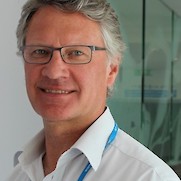Robotic assisted surgery is poised to increase access to Minimal Access Surgery for many patients.

Minimal access surgery (MAS) brings many benefits to patients undergoing surgery: less pain, quicker return to normal activity, reduction in surgical site infections amongst others. There is now strong evidence that minimal invasive surgery has superior outcomes for this type of surgery over traditional surgery for many common procedures. Surgical complications represent a substantial burden of harm to patients and in the United States alone are estimated to cost $25 billion annually. It is estimated that more than a million patients a year die within 30 days of surgery. Despite the obvious advantages of MAS the choice of surgery is often a matter of surgeon preference with more than 50% of patients still undergoing open surgery. It is hypothesized that this is because of the difficulty in performing MAS. Robotic assisted surgery may make the acquisition of skills easier to obtain but despite this after 20 years of availability the incidence of surgery being performed robotically is only 5%. We believe that the provision of a robotic platform that is cheaper and easier to use may increase access to MAS with all its attendant benefits.
Introduction of novel medical devices brings with it the challenge of doing this ethically and without risk to patients while at the same time managing to do it as quickly as possible and keeping it affordable. This talk will describe the development of a new surgical robotic platform and the steps undertaken to introduce it safely and ethically.
Mr. Mark Slack, CMR Surgical and University of Cambridge

Mark Slack qualified at the University of the Witwatersrand. He then completed his postgraduate training at the University of Cape Town. He graduated from the College of Medicine of South Africa winning the Daubenton Gold Medal for the most distinguished candidate in the exams in the country. He was previously head of Gynaecology and Urogynaecology at Addenbrooke’s Hospital, University of Cambridge Teaching Hospitals Trust, Cambridge. He is an associate lecturer at the University of Cambridge.
Mr. Slack runs an active research unit in Cambridge. The unit is involved in a number of research initiatives. He developed and introduced the Sacrospinous Fixation to the UK. In addition, he has invented a number of procedures which were adopted by international pharmaceutical companies. He has published over 80 peer reviewed papers, more than 20 book chapters and numerous national guidelines.
He is a founder and director of CMR Surgical, a start-up company in Cambridge currently developing a surgical robot. This is now one of the largest Med Tech companies in Europe.
He was appointed the Ethicon travelling Professor in 2004 as well as the Sims Black Professorship of the Royal College of Obstetricians and Gynaecologists for 2005/6. Between 2006 and today he was awarded travelling Professorships to the Royal Australian and New Zealand College of Obstetrics and Gynaecology (2006 and 2019), the South African Medical college 2017, the University of Cape Town 2009, the University of British Columbia, Canada 2018 and the University of Pretoria 2018. He was recognised by the NIHR in 2015 with an award as one of the leading researchers in the UK for clinical research. In 2018, under his leadership, the Urogynaecology unit in Cambridge achieved the highest accreditation score ever awarded by the Royal College of Obstetricians and Gynaecologists recognizing it as one of the leading units in the country.
Attending lectures